
Local experts look for an improving housing market in 2010.
Industry Q&A
Florida’s housing market has been battered by the combination of a weak economy, gloomy job market, declining home values, a rise in foreclosures and tight credit conditions.
But the news isn’t all bad. The economy seems to be in the early phase of a recovery and there’s a growing consensus that in 2010 the housing market also will begin to turn around.
Several factors, including low mortgage rates, affordable home prices and federal economic stimulus programs, have helped drive home sales in recent months.
The extension and expansion of the government’s homebuyer tax credit—which offers up to $8,000 to first-time homebuyers and up to $6,500 for existing home-owners who qualify—is expected to spur sales through the first quarter.
And although a number of large construction projects in Northeast Florida have been put on hold, others, such as The PARC Group’s Nocatee, are moving along as planned or even being stepped up.
With that in mind, Florida Homebuyer Jacksonville">Jacksonville asked several industry heavyweights, including builders, developers and Realtors, to share their thoughts on what the next 12 months may hold.
Although no one has a crystal ball, panelists agree that the housing market is poised for a rebound in 2010 and that home prices and mortgage rates are likely to rise.
Homebuyers who wait too long, says Don Wilford of ICI Homes, “will pay more, get less incentives and less for their money than they can get right now.”
But the question is this: Is buying a home still a wise investment?
“When I hear that owning a home is not a good investment, I just about flip out,” Wilford says. “That’s nonsense. Just ask your father, your grandfather or any long-term real estate investor. When things settle down, it will be very clear that owning solid real estate is the fastest way to creating wealth on a big or small scale.”
In addition to Wilford, panelists included builders Gerry Boeneman, Jacksonville">Jacksonville Division president for Ryland Homes; and Jim McDade, North Florida Division vice president for Toll Brothers. Developers included Richard T. Ray, managing partner with The PARC Group, and Greg Matovina, president of Matovina & Company.
Rounding out the group were Realtors Carol Hill of Prudential Network Realty, who is also president of the Northeast Florida Association of Realtors; Dean Miller of Century 21, who is also president of the Amelia Island/Jacksonville">Nassau County Association of Realtors; and Chuck Pacetti of Homestar Pacetti Realty, who is also president of the St. Augustine/Jacksonville">St. Johns County Board of Realtors.
Here’s what they had to say:
BUILDERS
Do you expect the industry to rebound in 2010? Gerry Boeneman: We’re finally seeing signs of improvement in the housing market and I expect continued improvement in 2010. �Prices are stabilizing, and historically low interest rates have helped reduce standing inventory, which must happen for the housing market to rebound. �The recently extended tax incentives are a huge benefit for both new and existing homeowners. �In short, now is a great time to buy a home.
Gerry Boeneman: We’re finally seeing signs of improvement in the housing market and I expect continued improvement in 2010. �Prices are stabilizing, and historically low interest rates have helped reduce standing inventory, which must happen for the housing market to rebound. �The recently extended tax incentives are a huge benefit for both new and existing homeowners. �In short, now is a great time to buy a home.
�
 Jim McDade: We’re hopeful that the overall economy, including the housing industry, will continue to rebound in 2010.
Jim McDade: We’re hopeful that the overall economy, including the housing industry, will continue to rebound in 2010.
�
�
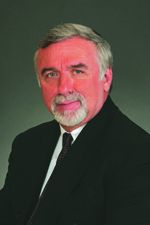 Don Wilford: Builders, subcontractors and vendors know our industry has bottomed out already because we’ve gone through all our inventory while short sales and foreclosures have been picked through. The homes we’re building still have the same design and quality but we’re able to build them for 25 percent less than in 2006. I expect prices to go up more than 15 percent between now and the end of the year of 2010.
Don Wilford: Builders, subcontractors and vendors know our industry has bottomed out already because we’ve gone through all our inventory while short sales and foreclosures have been picked through. The homes we’re building still have the same design and quality but we’re able to build them for 25 percent less than in 2006. I expect prices to go up more than 15 percent between now and the end of the year of 2010.
�
Did the recent downturn change buyer desires and expectations?
Boeneman: The downturn has affected everybody in different ways and I think new home buyers today want what they have always wanted—a quality, energy-efficient home at an affordable price —which is what Ryland Homes continues to provide. �
McDade: Yes and no. During
the worst of the downturn homebuyers were more focused on trying to find a “steal.” Now that the market is more stabilized, they’re back to focusing on value and quality.
Wilford: It did. Mainly because finding a loan was so difficult while lenders sorted out the new regulations and qualifying requirements. First-time buyers who could get financing got deals of a lifetime. Most buyers accepted less square footage but they �didn’t want to give up the bells and whistles. Buyers have also become more educated. ���
Will 2010 be a good time to buy, or did those who sat out the downturn miss their window of opportunity?
Boeneman: Prices will increase as the market improves, the tax credits will expire and fewer homes will be available. �All of these things,
plus the potential of higher interest rates in the future, will decrease your buying power. �Now is the time to buy if you want to get the most value for your investment.
McDade: The window is still open, but homebuyers who are serious shouldn’t wait. For example, in some of our markets we’ve been slowly reducing incentives. And the recently extended and expanded tax credits are available for a limited time, so homebuyers must act today to take advantage of this opportunity.
Wilford: Yes, 2010 will be an awesome time to buy because buyers are seeing the recovery and seeing the market getting better. They see inventory going faster and understand that the inventory left isn’t as desirable as what they could have bought last year. People are buying homes to live in. That’s refreshing because during the boom, people were buying homes that they had no intention of living in and that they couldn’t afford. �
In your business, what’s the biggest challenge you expect to face in 2010?
Boeneman: The negative impact to appraisals caused by short sales and foreclosures will continue to be a challenge for our industry. �I think one of the biggest challenges is getting buyers to overcome the continual negative press and to help them realize that now is a great time to buy a home.
McDade: The biggest challenge will be to ensure that we’re ready for the rebound and prepared to make adjustments for it.
Wilford: I’m hoping that subcontractors and vendors can survive this downturn and re-hire their craftspeople. The federal government needs to finally realize when housing is hurting, the nation is hurting. Lenders need to be more proactive in making mortgage loans more accessible. Banks, along with the federal government, must make property appraisals fair and related to real market value.
REALTORS
Has the extension of federal tax credits for home purchases stirred up interest among your clients?
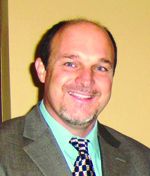 Chuck Pacetti: It’s definitely a topic of interest to our clients. The key is getting the word out. The addition of a $6,500 tax credit for buyers who aren’t first-timers along with higher income limits really expands the base of buyers who could benefit from these programs.
Chuck Pacetti: It’s definitely a topic of interest to our clients. The key is getting the word out. The addition of a $6,500 tax credit for buyers who aren’t first-timers along with higher income limits really expands the base of buyers who could benefit from these programs.
�
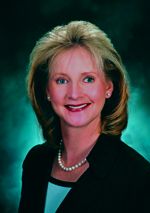 Carol Hill: Yes, there’s a great awareness among consumers about the tax credits. The extension will help those who were struggling to meet the deadline for the initial tax credit and will assist Realtors with home sales in the first quarter of 2010.
Carol Hill: Yes, there’s a great awareness among consumers about the tax credits. The extension will help those who were struggling to meet the deadline for the initial tax credit and will assist Realtors with home sales in the first quarter of 2010.
�
�
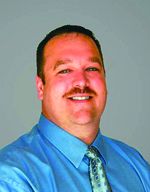 Dean Miller: It’s too early to tell the impact. The original tax credit definitely stirred up activity with first-time homebuyers. We anticipate the extension/expansion will also have a positive effect.
Dean Miller: It’s too early to tell the impact. The original tax credit definitely stirred up activity with first-time homebuyers. We anticipate the extension/expansion will also have a positive effect.
�
�
Have your clients encountered difficulty getting mortgage loans?
Pacetti: Mortgage loans are definitely more difficult to get now, depending on the type of property and the buyer’s qualifications. Suffice it to say that the only buyers who’ll be able to get a mortgage are those who fully qualify for one. A buyer with a 20 percent down payment who qualifies financially can certainly obtain a mortgage in most cases.
Hill: Not really. Certainly mortgage credit guidelines have tightened up, making it tougher on those with lower credit scores. But qualified buyers looking in a price range that they can afford and having the necessary down payment won’t have any difficulty.
Miller: Yes, and there are several factors that have contributed to this. The guidelines for qualifying have tightened up. With many closing dates being pushed back, the interest rates buyers have locked in are expiring. We’re experiencing problems with appraisals because foreclosures and short sales are effecting appraised values.
Do you encourage your clients to look at short-sales and foreclosures?
Pacetti: I do encourage my clients to look at short sales and foreclosures—if they’re able to work with the challenges presented by those types of transactions. While there are great bargains to be had, buyers must be patient and willing to accept properties that need repairs. The Home Affordable Foreclosure Alternatives Program (HAFA) is currently being rolled out and hopefully will be adopted and implemented by banks soon. These guidelines should standardize the process and improve the efficiency of buying short sales.
Hill: Yes, only after spending time educating consumers on the process and the risks. Buyers are encouraged to fully explore all types of sales on the market today— traditional sales, short-sales, foreclosures and REO’s (bank-owned properties).
Miller: Yes, I do. These properties need to be off the market to reduce inventory and they offer a great opportunity to get into a home at a great value. Buyers do, however, need to be in a position to handle the stress and delays associated with these properties.
What’s the best thing Northeast Florida has going for it in terms of the real estate business?
Pacetti: Northeast Florida has three things going for it in terms of the real estate business—location, location, location. We’re still a very good bargain compared to other parts of Florida. We have great beaches with lots of public access, slight seasonal changes and are conveniently located for travel.
Hill: The Northeast Florida housing market is still very affordable and caters to a variety of interests such as golf, beaches, lakes, boating, fishing, hiking trails, college and professional sports and more. It also continues to be a strong corporate center with numerous relocations and expansions.
Miller: Employment opportunities are growing with the expansion of the Jacksonville">Jacksonville Port Authority and the surrounding military bases. �Recreation here is wonderful with golf, surfing and fishing. We also offer many venues including—but not limited to—sporting events, concerts, car and truck shows.
DEVELOPERS
Do you expect large projects that had been put on hold during the downturn to re-emerge in 2010? Richard T. Ray: No, I believe that the market in 2010 will continue to be challenging and that large projects in Northeast Florida won’t re-emerge until there is a more predictable outlook for the future.
Richard T. Ray: No, I believe that the market in 2010 will continue to be challenging and that large projects in Northeast Florida won’t re-emerge until there is a more predictable outlook for the future.
�
�
 Greg Matovina: No, we still have inventory and the price at which we’re selling lots wouldn’t justify starting new developments. I think projects in good, strong locations will come back, but probably not in 2010. It may be 2012 or 2013.
Greg Matovina: No, we still have inventory and the price at which we’re selling lots wouldn’t justify starting new developments. I think projects in good, strong locations will come back, but probably not in 2010. It may be 2012 or 2013.
�
�
Do you expect growth to resume in 2010? If so, what parts of the region will experience this growth?
Ray: Growth in 2010 is expected to be steady, but at a slow pace.
Matovina: �That’s a hard question. I would hope what we saw
this year represented a low point
and we’ll gradually start to in-crease from here. But I think growth will be in the less expensive price points.
As a developer, what’s the biggest challenge you expect to face in 2010?
Ray: The builders need to be successful for the developers to be successful. We expect that the biggest challenge in 2010 will continue to be the pace of new home sales, particularly in the higher-priced communities. Success in the retail market is also dependent on residential activity.
Matovina: Cash flow. We have to get from today until the time the market turns around again. We have to get our existing inventory reduced and get the banks paid back.
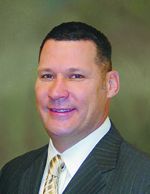 Name: Andy Chambers, President, MasterCraft Builder Group
Name: Andy Chambers, President, MasterCraft Builder Group
Title: �2010 NEFBA President
Education: �B.S., University of Central Florida
Family: �Wife, Lisa; two sons, Drew and Clayton
Hobbies/Interests: Golf, sport clay shooting, reading English literature. “But the most important hobby is spending time with my kids.”
Q. Everyone is hoping 2010 will be a year of recovery for the homebuilding industry. What’s your opinion? �
A. It all starts with your definition of recovery. My definition is when we begin to stabilize. �I believe 2010 will be the year that our industry will begin to stabilize and show signs of improvement.
Q. What are the major issues, political or otherwise, that could derail a recovery? �
A. No one can predict future events, political or otherwise. �One thing is for sure—NEFBA will continue to remain focused on removing obstacles that lead to more regulation and increased costs.
Q. What plans do you have to deal with those issues? �
A. We’re going to focus on the basics. Continue placing an intense focus on our local councils and staying proactive by enhancing our relationships with the elected officials who make those decisions.
Q. What are your specific goals as president of NEFBA? �
A. This year NEFBA will focus on the fundamentals of our success and continue getting back to the basics. Plain and simple, we exist to protect our builders and trade partners and should strive as an association to preserve our industry. We’ll also continue to protect the financial viability of the association.
Q. NEFBA has fared better than many builders associations through the downturn. Why do you think that is? �
A. Leadership, leadership, leadership. I’ve never seen an organization of so many people willing to serve our industry. It’s clearly the leadership of those who have come before me that have made the difference. I hope I can serve as well as they have.
Q. How has the recent downturn changed the way homebuilders do business? Are the changes permanent? �
A. The downturn has changed the homebuilding industry on all levels. On the positive side, we’ve become more efficient, cost-effective and quality-conscious. We’ve learned many lessons that will be remembered for years to come.
